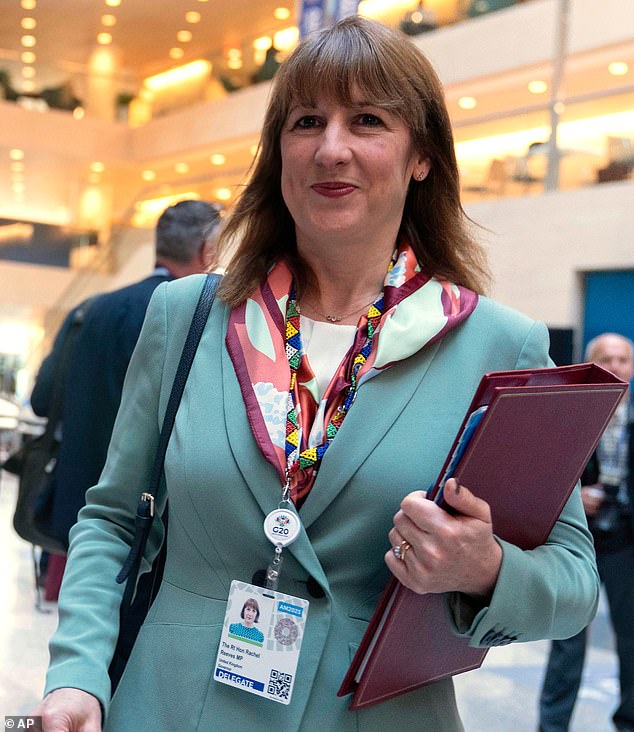As autumn deepens, households across Middle England are nervously eyeing their finances, with Chancellor Rachel Reeves hinting that tougher times could be ahead.
Speaking on the sidelines of the International Monetary Fund’s annual meetings in Washington, Ms Reeves suggested that those with the “broadest shoulders” may be asked to contribute significantly more to the Treasury.
With the economy showing almost no growth over the summer, the Chancellor is laying the groundwork for a Budget that could hit not just the very wealthy but also parts of the middle class.
Her comments have sparked fears that assets like property, pensions, and savings could soon be under scrutiny.
No Wealth Tax—But Assets Are in the Crosshairs
While Ms Reeves has ruled out a formal wealth tax, her words made it clear that she is exploring other ways to tax wealth.
She emphasized that the focus will likely be on assets rather than wages, signaling potential moves against inheritance, retirement schemes, or even landlords.
“I do think that those with the broadest shoulders should pay their fair share of tax,” she said, pointing to last year’s £40 billion tax-raising Budget as evidence of her approach.
Despite a promise last year not to return with more tax hikes, the Chancellor’s remarks suggest she is preparing to do exactly that.
Defining the “Wealthy”
When asked how she defines a wealthy person, Ms Reeves distinguished wealth from income.
“Wealth is obviously different from income. So wealth is not about your annual salary,” she said.
She drew a line between outright wealth taxes—which she ruled out—and other measures that effectively tax the wealthy, citing Labour’s previous initiatives like VAT on private school fees, ending non-dom status, and taxing private jets.
In short, the Chancellor may not raise income tax rates, but she is leaving the door open to tap other pockets of wealth.
Balancing the Books: More Pain Ahead
To meet Budget rules, Ms Reeves will need to raise taxes or cut spending by tens of billions.
She admitted that increasing “headroom” against her financial targets may require both higher taxes and reductions in public services, including the NHS.
Analysts at the Institute for Fiscal Studies estimate up to £42 billion may be needed to create enough buffer, raising concerns of another “tax raid” scenario.
Shadow Chancellor Sir Mel Stride criticized the approach: “Under Labour nothing is safe.
Not your home, not your pension, not your savings.” He urged the government to control spending rather than placing the burden on taxpayers again.
Businesses Fear Another Hit
Businesses are already nervous about potential tax rises.
A recent survey by the Institute of Chartered Accountants in England and Wales revealed that firms are planning to cut jobs, raise prices, and reduce investment if taxes increase.
Alan Vallance, the institute’s chief executive, warned of a “damaging cliff edge” for business confidence if the Chancellor pursues another raid.
Even the boss of Whitbread, the owner of Premier Inn, cautioned against “punitive” measures, noting that Labour’s workers’ rights bill is already making business growth more challenging.
Taxi Fare Taxes Could Hit Vulnerable Users
Amid warnings from the Tories, speculation is growing that VAT could be applied to private hire fares.
This could disproportionately affect rural communities, people with disabilities, and the night-time economy.
Industry experts predict the measure could raise around £750 million a year, adding £2–£3 to a typical £12 journey.
Treasury Minister Dan Tomlinson said the government is taking the issue “very seriously” and consulting widely, but opposition politicians suspect this could be another stealth tax in the works.
A Budget That Targets Middle England
Even though a formal wealth tax is off the table, Ms Reeves has made it clear that taxes on the wealthy will feature in the November 26 Budget.
Her remarks about “broad shoulders” suggest that anyone with property, savings, or investments beyond a modest level could face new levies.
Expectations include higher capital gains tax, National Insurance on rental income, further inheritance tax changes, and potential tweaks to council tax bands.
Many retired homeowners or families who have saved carefully could see themselves in the Chancellor’s crosshairs.
Who Really Has the “Broadest Shoulders”?
One of the biggest questions remains who counts as wealthy.
Labour’s last Budget was vague on this, and officials struggled to define the term.
Keir Starmer once described a working person as someone who can’t simply “write a cheque to get out of difficulties,” though small savings were allowed.
If Labour applies this logic again, millions of ordinary families could face additional taxes simply for having a home, a pension, or savings for a rainy day.
Middle England could feel the brunt, even if headline-grabbing wealth taxes on the ultra-rich remain off the table.
Share on Facebook «||» Share on Twitter «||» Share on Reddit «||» Share on LinkedIn
